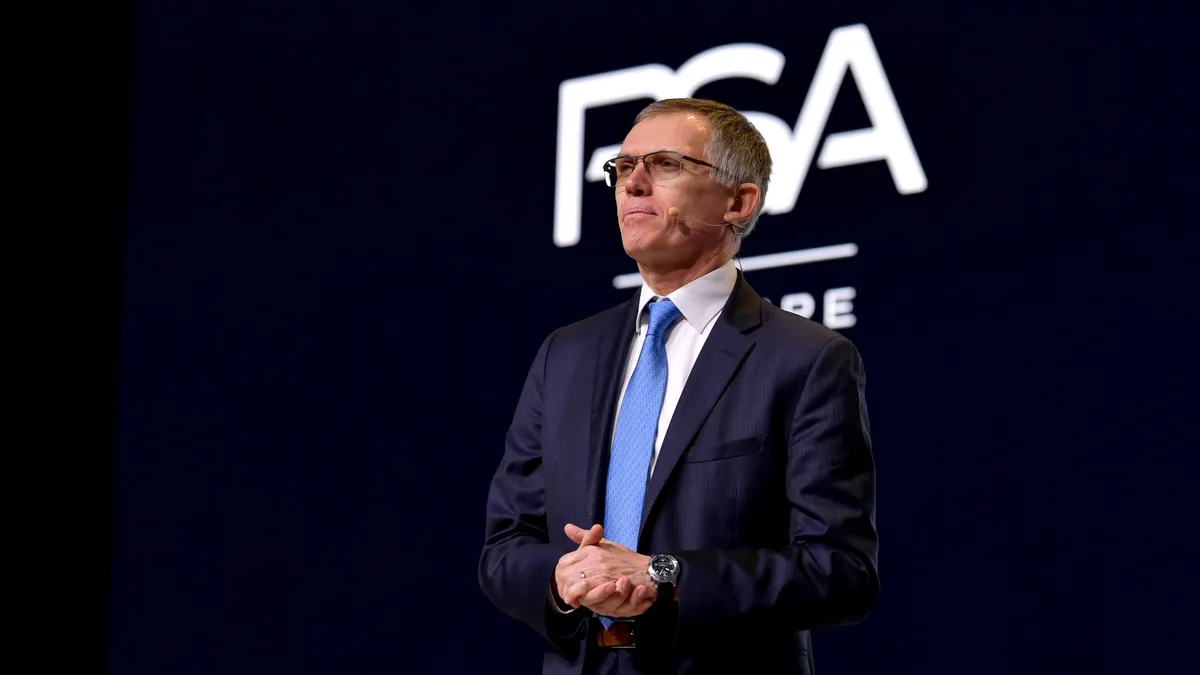Dive Brief:
- More than 70% of Stellantis shareholders voted in favor of the company’s remuneration report last week, which includes the compensation of CEO Carlos Tavares and other top executives.
- The vote passed by a thinner margin than the previous year, as some shareholders raised concerns over large executive compensation increases. In 2022, 80% of shareholders voted in favor of the report.
- Tavares’ 2023 total compensation was nearly 36.5 million euros, up more than 55% year over year, according to Stellantis’ proxy statement filed in February.
Dive Insight:
Much of Tavares’ pay — 26 million euros — was attributable to the company’s long-term incentive plan, which is based on performance goals. Last year, he had the long-term incentive opportunity to earn up to 780% of his 2 million euros base salary.
The pay boost approval comes as Stellantis reported record results in 2023. The Chrysler, Dodge and Jeep parent grew net revenues by 6% year over year to 189.5 billion euros, according to its annual report.
During his presentation at the annual shareholders meeting, Tavares highlighted Stellantis’ success with plug-in hybrid models in the U.S., doubling sales year over year to 136,000 units. He also touted its planned battery electric vehicle portfolio expansion to 48 models — a 60% increase from its current 30 models — in 2024.
Executive compensation among the Detroit Three automakers have long drawn ire from the United Auto Workers union. Stellantis’ CEO pay ratio is 518-to-1 compared to the average employee, who earned 70,404 euros last year.
More recently, investors have criticized Tavares’ pay increase amid Stellantis’ March job cuts.
Last month, the company said it was laying off 2% of its nonunion U.S. workers across its engineering, software and technology organizations. It also recently announced layoffs in Italy and France, Reuters reported.
Those cuts may put more focus on the “alignment between Stellantis’ executive remuneration practices and stakeholder experience,” said Glass Lewis. The proxy advisory service firm also noted the potential for reputational risk.














